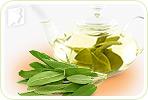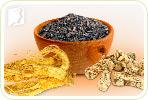Night sweats can be clammy and unpleasant, but they do not have to be the obstruction that stands between you and a good night's sleep. Night sweating, or nocturnal hyperhidrosis, occurs when activity in the body causes a raise in internal temperature, to which the body responds by producing sweat to cool down. If left untreated, sweating episodes might repeatedly interrupt your sleep cycle and result in fatigue. Luckily, there are a number of simple adjustments you can make to your diet, evening habits, and sleeping environment to ensure that this does not happen.
Avoid Dietary Stimulants
Certain chemicals and compounds trigger an increase in body temperature and resultant sweating. For this reason, alcohol, caffeine, and spicy foods are best avoided in the evening. You should change your diet and also take care not to eat dinner within two hours of going to bed, and the process of digestion is likely to raise internal temperature and increase the likelihood of sweating in the night.
Keep a Cool Sleeping Environment
This may seem obvious, but aiming to keep a consistently cool body temperature as you sleep will considerably reduce sweating episodes during the night. Avoid using central heating or heaping unnecessary blankets on your bed. In addition, keep a window open for ventilation and layer cotton sheets to sleep beneath, as these allow the skin to breathe and remain cool through the night.
Sleep Naked
Restrictive nightwear in synthetic materials, like lace or silk, will only exacerbate night sweating. Sleeping naked - or wearing loose, breathable nightwear - allows air to access the skin to keep you cool and aid the evaporation of any sweating that does occur, which will prevent uncomfortable clamminess.
Use Sage
Sage has considerable sweat-relieving properties, so finding a way to work the herb into your evening routine could be useful in minimizing sweating episodes. You could use sage to season your evening meal, drink sage tea, or add a cool sage poultice over sweat-prone areas before going to bed.
Apply Talcum Powder
Talcum powder has astringent properties that cause the skin tissues to constrict and deter sweating. Talc is also absorptive and fragrant, so it will absorb sweating that occur and mask body odor. Ensure your skin is completely dry, then apply it to sweat-prone areas before going to bed.
Avoid Heated Environments
Sweating episodes can be triggered up to two hours after a raise of internal body temperature. This means that if you suffer with nocturnal hyperhidrosis, heated environments, such as hot baths and saunas, should be avoided during the evening to prevent resultant night sweats.
Getting 6 to 8 hours of restful sleep per night is essential for maximizing energy and concentration levels during the day. Sleep strengthens the body and allows it to rejuvenate after the day's exertion; while, conversely, sleep withdrawal and fatigue weakens immunity and makes the body more susceptible to disease.
Sources
- Dall, L. & Stanford, J.F. (1990). Fever, Chills, and Night Sweats. In: Clinical Methods: The History, Physical, and Laboratory Examinations. 3rd ed. Retrieved February 27, 2014 from http://www.ncbi.nlm.nih.gov/books/NBK324/
- National Health Service UK. (2011). Night sweats. Retrieved February 27, 2014 from http://www.nhs.uk/conditions/night-sweats/Pages/Introduction.aspx
- NYU Langone Medical Center. (2014). Phytoestrogens. Retrieved February 27, 2014, from http://www.med.nyu.edu/content?ChunkIID=108298
- Shenefelt, P.D. (2011). Herbal Treatment for Dermatologic Disorders. In: Herbal Medicine: Biomolecular and Clinical Aspects. 2nd ed. Retrieved February 27, 2014, from http://www.ncbi.nlm.nih.gov/books/NBK92761/




